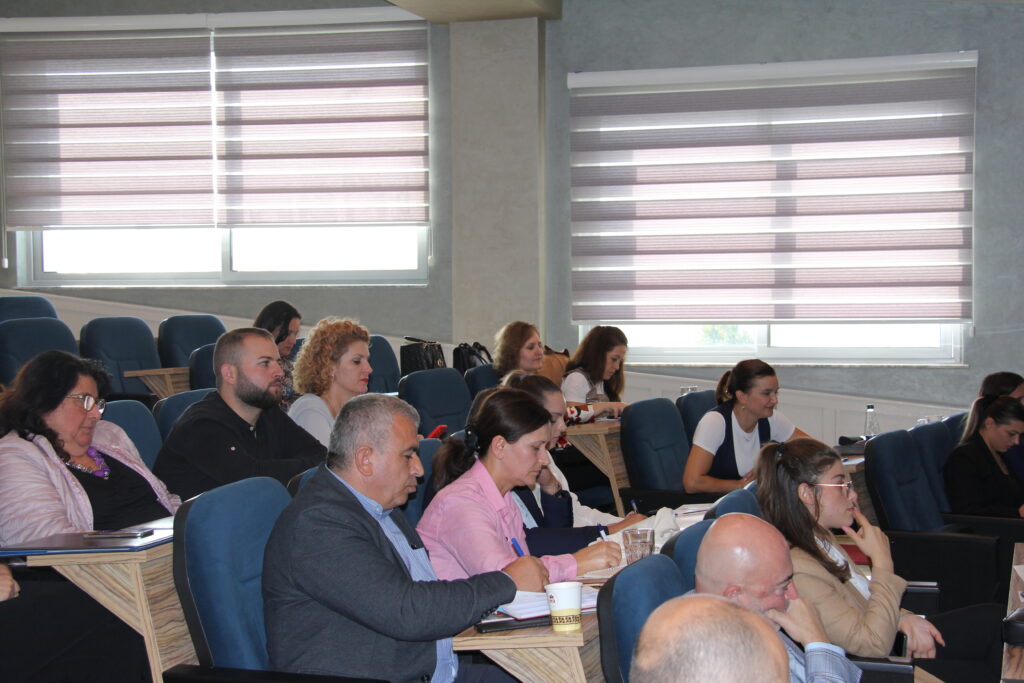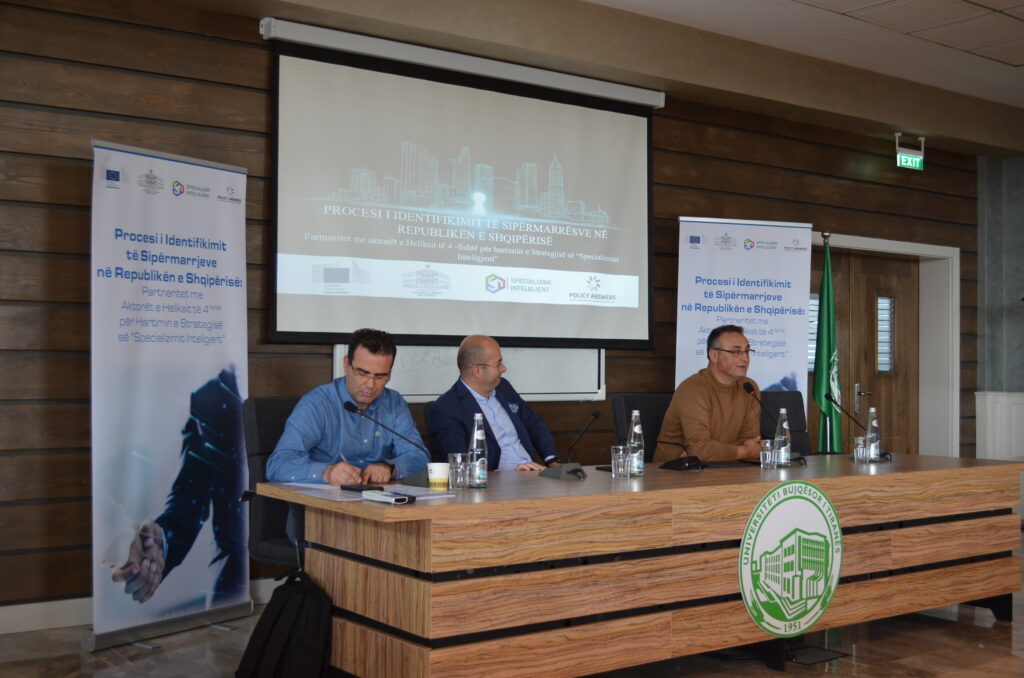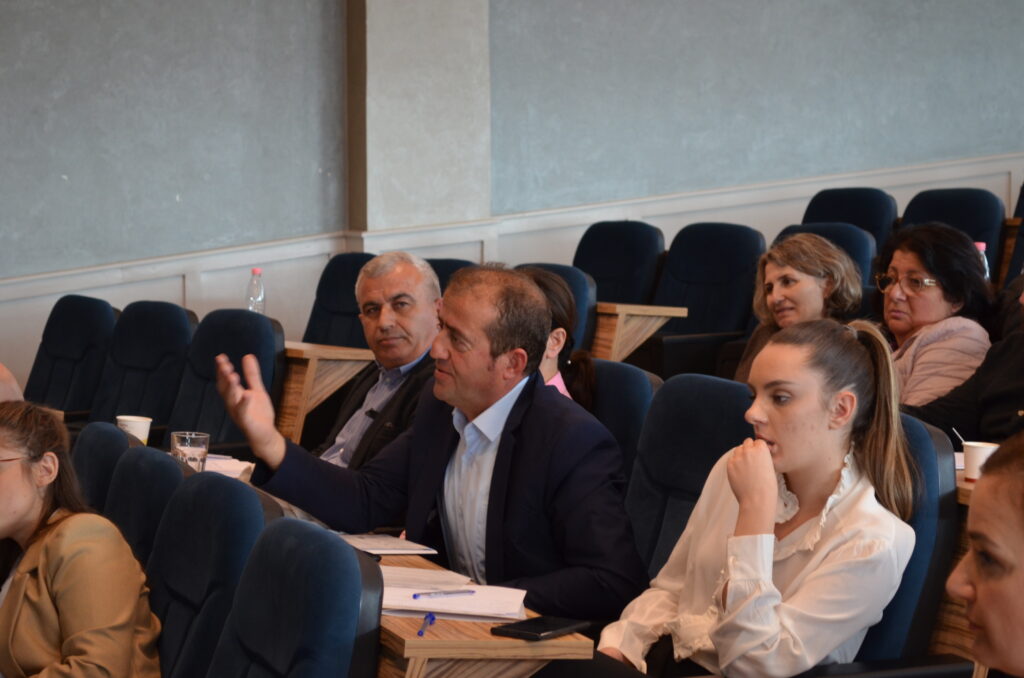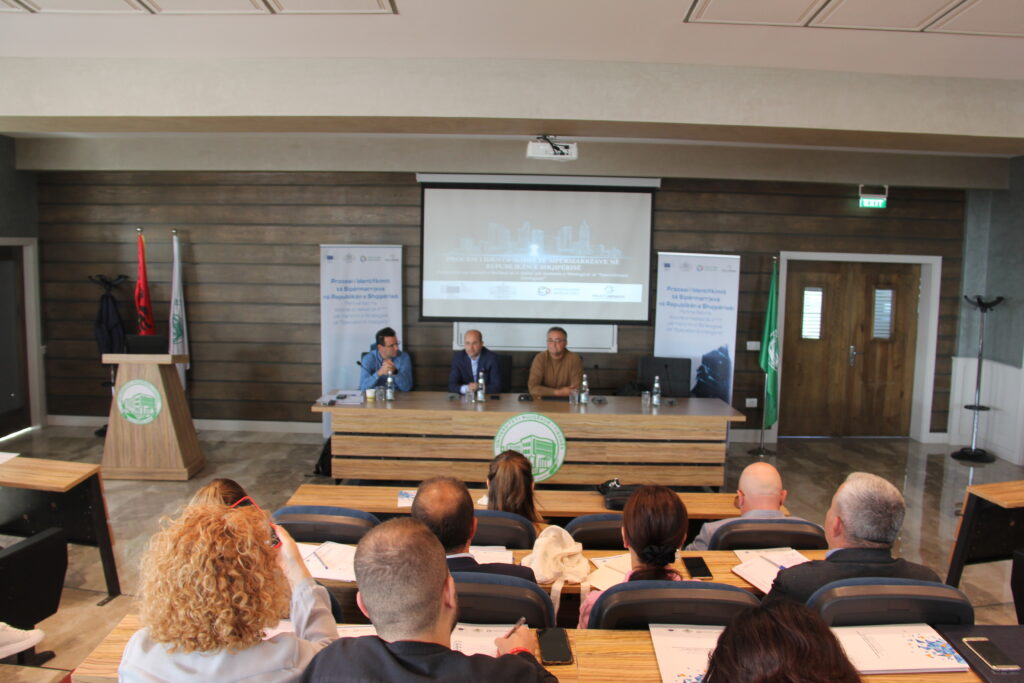The forest industry was the focus of the third consecutive event held as part of the “Entrepreneurial Discovery Process” in the Republic of Albania for the agricultural sector. The event kicked off with a briefing on the smart specialization strategy’s aims and objectives, the methodology used to identify the priority domains during the mapping process carried out in 2021, as well as the role and the activities that will be organized as part of the effort for implementing the Entrepreneurial Discovery Process in the Republic of Albania. The quadruple helix actors were then invited to discussed whether or not this sector should be considered a priority one for the country’s smart specialization, to identify and analyze the strengths, weaknesses, opportunities, and threats (SWOT) of this sector, and to share their opinion on the most important measures to be incorporated into the country’s smart specialization strategy to foster this sector’s development.
Activities and Output:
In the first session of the event, the participants were given an overview of the concept of the smart specialization concept, the priority domains for the country’s smart specialization (which, according to the mapping process conducted in 2021, are agriculture, tourism, energy, ICT, manufacturing, and BPOs), the goal of the entrepreneurial discovery process, the strategic role of the quadruple helix actors will have in this process, and the full schedule of activities that will organized as part of the Entrepreneurial Discovery Process in the Republic of Albania.
The second session of the activity was then focused on discussing the state of the industry, its place in the larger context of the country smart specialization, as well as its future prospects from the perspectives of quadruple helix present actors present at the event. Particularly noteworthy was the fact that, although this sector does not represent a potential from an industrial point of view, according to the participants, it must still be considered as a top priority area for the country’s smart specialization given its role to the development of the mountain tourism and impact on climate change. As for the main obstacles to the development of this sector, according to the quadruple helix actors they were the lack of public awareness about the connection that exists between deforestation and climate change, unfavorable demographic trends, a lack of experts in this field, a lack of reliable public data on this sector’s performance, and last but not least, the lack of willingness on the part of the business helix and academia to work on joint initiatives that promote the development of this sector.
In the final session, participants were asked to share their thoughts on the most important measures that should be incorporated into the smart specialization strategy in support of this sector’s sustainable development. These measures included, but were not limited to: reviving LAGs; implementing integrated forest management systems; centralizing the forest administration function; and building the capacities required to better plan, manage, and monitor Forest areas in Albania
Members of the Panel
- Mr. Arben Shkodra: Secretary General of Albania Manufacturing Union (AMU), Member of the Inter-Institutional Working Group for the Smart Specialization Strategy and moderator of the event
- Prof. Assoc. Dr. Leonidha: Dean of the Faculty of “Forestry” at “Agriculture University of Tirana”
- Prof. Dr, Elvin Toromani: Lecturer in the Faculty of “Forestry” at “Agriculture University of Tirana”
- Event organizers
This activity was organized by Future Center in collaboration with Inter-Institution Working Group and Albanian Manufacturing Union (AMU), and the support of the European Commission’s Joint Research Center (JRC) and the POLICY ANSWERS Project (Horizon Europe GA 10105887).




